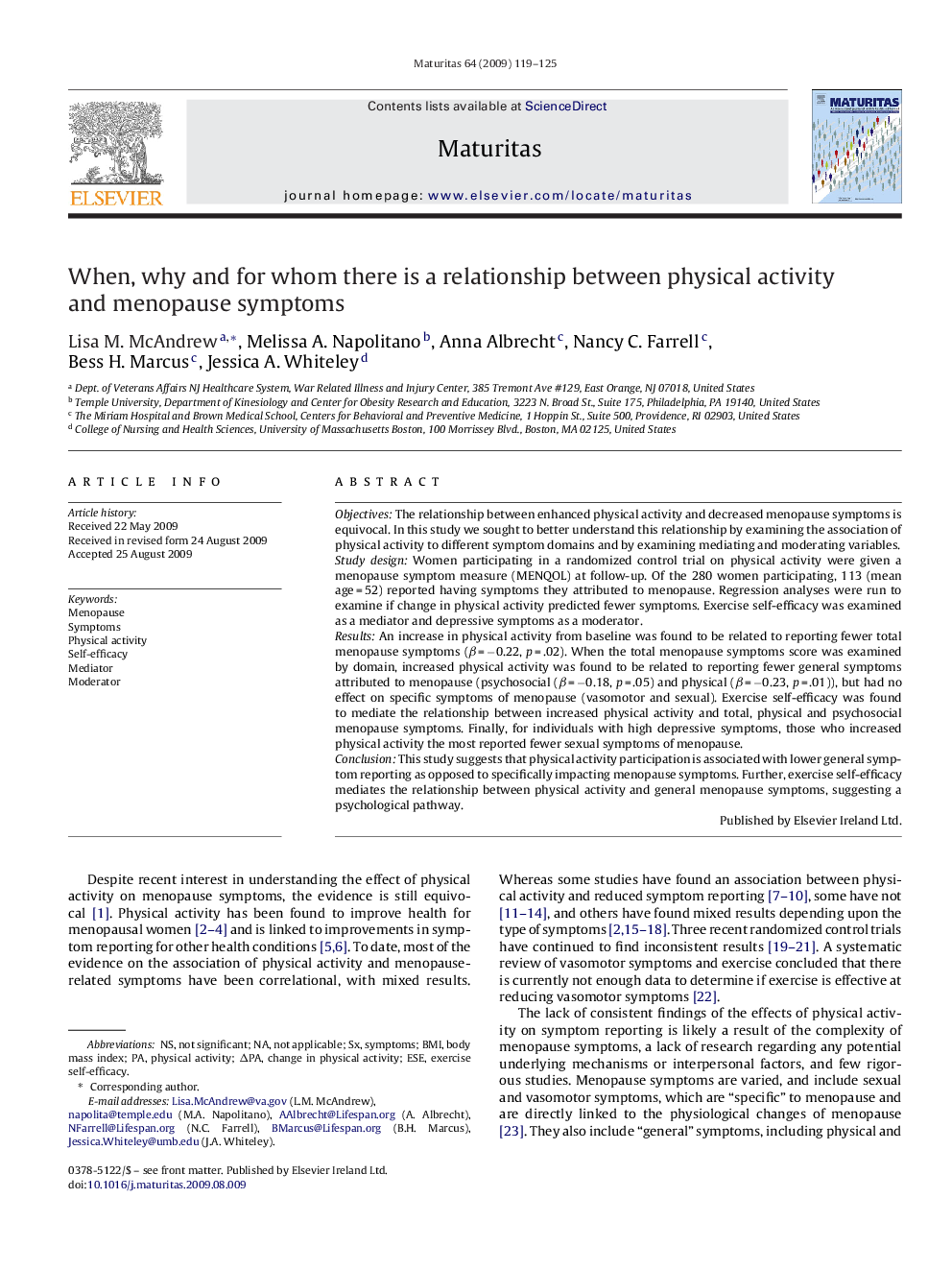| Article ID | Journal | Published Year | Pages | File Type |
|---|---|---|---|---|
| 1918182 | Maturitas | 2009 | 7 Pages |
ObjectivesThe relationship between enhanced physical activity and decreased menopause symptoms is equivocal. In this study we sought to better understand this relationship by examining the association of physical activity to different symptom domains and by examining mediating and moderating variables.Study designWomen participating in a randomized control trial on physical activity were given a menopause symptom measure (MENQOL) at follow-up. Of the 280 women participating, 113 (mean age = 52) reported having symptoms they attributed to menopause. Regression analyses were run to examine if change in physical activity predicted fewer symptoms. Exercise self-efficacy was examined as a mediator and depressive symptoms as a moderator.ResultsAn increase in physical activity from baseline was found to be related to reporting fewer total menopause symptoms (β = −0.22, p = .02). When the total menopause symptoms score was examined by domain, increased physical activity was found to be related to reporting fewer general symptoms attributed to menopause (psychosocial (β = −0.18, p = .05) and physical (β = −0.23, p = .01)), but had no effect on specific symptoms of menopause (vasomotor and sexual). Exercise self-efficacy was found to mediate the relationship between increased physical activity and total, physical and psychosocial menopause symptoms. Finally, for individuals with high depressive symptoms, those who increased physical activity the most reported fewer sexual symptoms of menopause.ConclusionThis study suggests that physical activity participation is associated with lower general symptom reporting as opposed to specifically impacting menopause symptoms. Further, exercise self-efficacy mediates the relationship between physical activity and general menopause symptoms, suggesting a psychological pathway.
